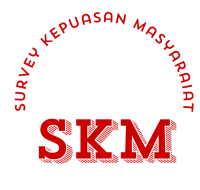TANTANGAN DAN STRATEGI KEBIJAKAN PENGELOLAAN SAMPAH PLASTIK DI PELABUHAN PERIKANAN INDONESIA
Sari
Pengelolaan sampah plastik di pelabuhan perikanan nasional menghadapi permasalahan sistemik dan multidimensi. Studi ini bertujuan untuk mengidentifikasi dan menganalisis permasalahan utama dalam pelaksanaan kebijakan pengelolaan sampah di pelabuhan perikanan berdasarkan pendekatan kualitatif melalui wawancara semi-terstruktur dan kajian literatur. Hasil penelitian menunjukkan lima isu krusial yang saling berkaitan: (1) kurangnya infrastruktur dan fasilitas dasar, (2) lemahnya koordinasi lintas kelembagaan, (3) rendahnya partisipasi dan kesadaran pelaku perikanan, (4) keterbatasan anggaran dan sumber daya manusia, dan (5) inkonsistensi serta lemahnya penegakan hukum. Sebagai contoh, di beberapa pelabuhan, meskipun tersedia kebijakan nasional seperti Perpres No. 83 Tahun 2018, ketidakhadiran SOP yang jelas, kurangnya anggaran, dan minimnya keterlibatan pelaku usaha menyebabkan kebijakan tersebut tidak dapat dijalankan secara efektif. Visualisasi data melalui bubble chart dan network mapping memperkuat temuan bahwa hambatan tersebut saling terhubung dan memerlukan pendekatan kebijakan yang holistik dan kolaboratif. Oleh karena itu, beberapa strategi kebijakan pengelolaan sampah plastik pelabuhan perikanan seperti penguatan struktur kelembagaan, pemberian insentif ekonomi, peningkatan kapasitas teknis, dan reformasi penegakan aturan menjadi kunci dalam mewujudkan sistem pengelolaan sampah pelabuhan perikanan yang berkelanjutan.
Plastic waste management in Indonesia’s fishing ports is facing a serious systemic crisis that not only threatens the sustainability of the marine environment but also disrupts the long-term viability of the national marine and fisheries sector. As the world’s second-largest contributor of plastic waste to the ocean, Indonesia generates a staggering 1.29 million tons of plastic waste annually. Fishing ports, which serve as key hubs for capture fisheries activities and seafood distribution, have become critical points in the waste management chain that urgently require rapid, targeted, and comprehensive policy interventions. A gap analysis of policy implementation reveals five interrelated and mutually reinforcing problems. First, waste management infrastructure in ports remains limited, with only around 30% of ports equipped with adequate Temporary Waste Storage (TPS) facilities. Second, waste management institutions remain fragmented and lack synergy, as evidenced by overlapping authorities among at least 12 related agencies. Third, stakeholder participation remains low. Fourth, there is a significant budget deficit, amounting to approximately 70% of the minimum required funding for effective waste management. Fifth, law enforcement is still suboptimal, with compliance rates for waste management regulations at only 40%. In response to the complexity of these challenges, the “Integrated Waste Management System” policy has been selected as the most feasible strategic solution, based on William N. Dunn’s criteria analysis. This system integrates four main pillars: strengthening a coordinative institutional framework capable of harmonizing inter-agency roles; developing environmentally friendly, technology-based waste management infrastructure; enhancing the active participation of coastal communities and fishing groups; and enforcing laws firmly and consistently through incentive and disincentive mechanisms.
Kata Kunci
Teks Lengkap:
PDFReferensi
Apriadi, B. F., Setiawan, R. P., & Firmansyah, I. (2024). Policy scenario of plastic waste mitigation in Indonesia using system dynamics. Waste Management & Research.
Anwar, M. A., Suprihatin, S., Sasongko, N., Najib, M., Pranoto, B., Firmansyah, I., & Soekotjo, E. S. (2025). Sustainable waste management strategies for multilayer plastic in Indonesia. Cleaner and Responsible Consumption.
Cahyani, F. A., Jaya, B. P. M., & Wijaya, D. (2023). Marine waste management policy as an effort to prevent environmental pollution and sustainability of marine ecosystems: Indonesia perspective. Jurnal Legalitas.
Komarudin, U., & Ayuningtyas, D. (2024). Tackling Indonesia's plastic waste crisis: A political perspectives and policy implications. Jurnal Trias Politika.
Masni, I., Sianipar, J., Suryawan, W. K., Tarigan, S. R., & Kebijakan Indonesia Taiwan Sampah Laut. (2022). The challenges and future of marine debris policy in Indonesia and Taiwan case studies. Journal of Sustainable Infrastructure.
Puluhulawa, F., & Puluhulawa, M. (2021). Plastic waste in modern era: Developing plastic waste management for sustainability. E3S Web of Conferences.
Saja, A. M. A. (2015). The failure of waste management implementation programme in Bandung as a public policy case study. Jurnal Administratie Publica, 5(1), 65–74.
Setiabudi, A. W., Gunadi, & Rosdiana, H. (2022). A comparison study of fiscal policy in different countries regarding plastic waste management in supporting the achievement of sustainable plastic production and consumption patterns in Indonesia. International Journal of Science and Society.
Suryawan, W. K., Suhardono, S., Mutiara, M., & Septiariva, I. (2024). Waste recycling processing in Indonesian tourist attractions: Problems and challenges of implementing legal policies restricting plastic use. Jurnal Ilmu Lingkungan.
Tarigan, M. I. (2021). Measuring Indonesia's commitment to reducing plastic waste in the sea through a legal approach. Lambung Mangkurat Law Journal, 6, 103–118.
Tullo, A. (2018). Fighting ocean plastics at the source. Chemical & Engineering News.
Tri Yuwono, Mutiara Rachmat Putri, Susanna Nurdjaman, Sakti Wahyu Trenggono, Kamaluddin Kasim. Examining the role of Indonesian major fishing ports on contributing to ocean macroplastic pollution. Watershed Ecology and the Environment. Volume 7. 2025. Pages 74-83. ISSN 2589-4714.
Zahrah, Y., Yu, J.-U., & Liu, X. (2024). How Indonesia’s cities are grappling with plastic waste: An integrated approach towards sustainable plastic waste management. Sustainability. https://consensus.app/papers/how-indonesia-’-s-cities-are-grappling-with-plastic-waste-an-zahrah-yu/a4be914fdcce5b4695a7a0d20a27c413/?utm_source=chatgpt
DOI: http://dx.doi.org/10.15578/jp.v11i1.15577
Refbacks
- Saat ini tidak ada refbacks.

Copyright of Jurnal Pari (p-ISSN 2502-0730 , e-ISSN 2549-0133)
Sekretariat Badan Penyuluhan dan Pengembangan Sumberdaya Manusia Kelautan dan Perikanan
Kementerian Kelautan dan Perikanan
Index by
View My Stats










